第78章 CHAPTER X(2)
Thus lived Foma, day in and day out, always turning around on one and the same place, amid people who were always alike, and who never inspired him with any noble feelings. And then he considered himself superior to them, because the thoughts of the possibility of freeing himself from this life was taking deeper and deeper root in his mind, because the yearning for freedom held him in an ever firmer embrace, because ever brighter were the pictures as he imagined himself drifting away to the border of life, away from this tumult and confusion. More than once, by night, remaining all by himself, he would firmly close his eyes and picture to himself a dark throng of people, innumerably great and even terrible in its immenseness. Crowded together somewhere in a deep valley, which was surrounded by hillocks, and filled with a dusty mist, this throng jostled one another on the same place in noisy confusion, and looked like grain in a hopper. It was as though an invisible millstone, hidden beneath the feet of the crowd, were grinding it, and people moved about it like waves-- now rushing downward to be ground the sooner and disappear, now bursting upward in the effort to escape the merciless millstone. There were also people who resembled crabs just caught and thrown into a huge basket--clutching at one another, they twined about heavily, crawled somewhere and interfered with one another, and could do nothing to free themselves from captivity.
Foma saw familiar faces amid the crowd: there his father is walking boldly, sturdily pushing aside and overthrowing everybody on his way; he is working with his long paws, massing everything with his chest, and laughing in thundering tones. And then he disappears, sinking somewhere in the depth, beneath the feet of the people. There, wriggling like a snake, now jumping on people's shoulders, now gliding between their feet, his godfather is working with his lean, but supple and sinewy body. Here Lubov is crying and struggling, following her father, with abrupt but faint movements, now remaining behind him, now nearing him again.
Striding softly with a kind smile on her face, stepping aside from everybody, and making way for everyone, Aunt Anfisa is slowly moving along. Her image quivers in the darkness before Foma, like the modest flame of a wax candle. And it dies out and disappears in the darkness. Pelagaya is quickly going somewhere along a straight road. There Sophya Pavlovna Medinskaya is standing, her hands hanging impotently, just as she stood in her drawing-room when he saw her last. Her eyes were large, but some great fright gleams in them. Sasha, too, is here. Indifferent, paying no attention to the jostling, she is stoutly going straight into the very dregs of life, singing her songs at the top of her voice, her dark eyes fixed in the distance before her.
Foma hears tumult, howls, laughter, drunken shouts, irritable disputes about copecks--songs and sobs hover over this enormous restless heap of living human bodies crowded into a pit. They jump, fall, crawl, crush one another, leap on one another's shoulders, grope everywhere like blind people, stumbling everywhere over others like themselves, struggle, and, falling, disappear from sight. Money rustles, soaring like bats over the heads of the people, and the people greedily stretch out their hands toward it, the gold and silver jingles, bottles rattle, corks pop, someone sobs, and a melancholy female voice sings:
"And so let us live while we can, And then--e'en grass may cease to grow!"This wild picture fastened itself firmly in Foma's mind, and growing clearer, larger and more vivid with each time it arose before him, rousing in his breast something chaotic, one great indefinite feeling into which fell, like streams into a river, fear and revolt and compassion and wrath and many another thing.
All this boiled up within his breast into strained desire, which was thrusting it asunder into a desire whose power was choking him, and his eyes were filled with tears; he longed to shout, to howl like a beast, to frighten all the people, to check their senseless bustle, to pour into the tumult and vanity of their life something new, his own-- to tell them certain loud firm words, to guide them all into one direction, and not one against another. He desired to seize them by their heads, to tear them apart one from another, to thrash some, to fondle others, to reproach them all, to illumine them with a certain fire.
There was nothing in him, neither the necessary words, nor the fire; all he had was the longing which was clear to him, but impossible of fulfillment. He pictured himself above life outside of the deep valley, wherein people were bustling about; he saw himself standing firmly on his feet and--speechless. He might have cried to the people:
"See how you live! Aren't you ashamed?"
And he might have abused them. But if they were to ask on hearing his voice:
"And how ought we to live?"
It was perfectly clear to him that after such a question he would have to fly down head foremost from the heights there, beneath the feet of the throng, upon the millstone. And laughter would accompany him to his destruction.
Sometimes he was delirious under the pressure of this nightmare.
Certain meaningless and unconnected words burst from his lips; he even perspired from this painful struggle within him. At times it occurred to him that he was going mad from intoxication, and that that was the reason why this terrible and gloomy picture was forcing itself into his mind. With a great effort of will he brushed aside these pictures and excitements; but as soon as he was alone and not very drunk, he was again seized by his delirium and again grew faint under its weight. And his thirst for freedom was growing more and more intense, torturing him by its force.